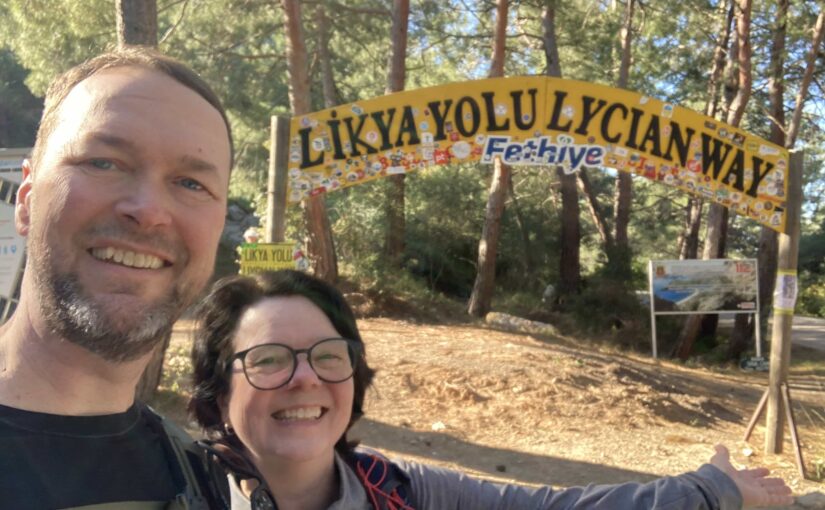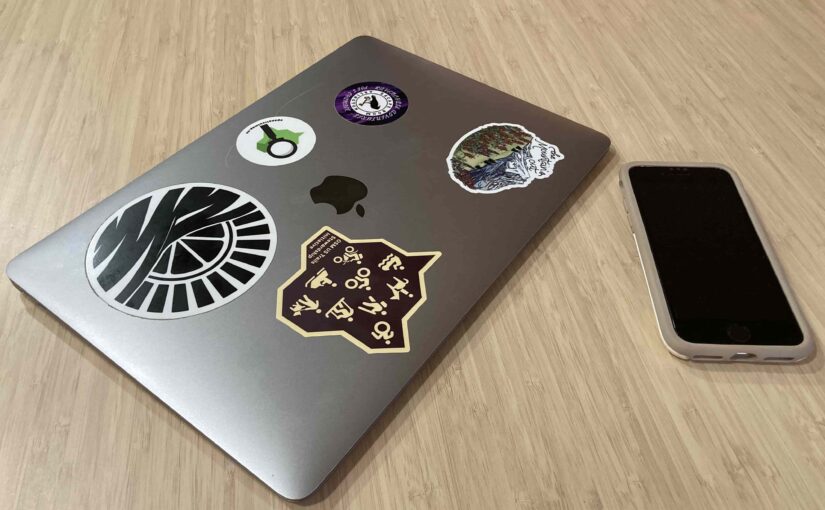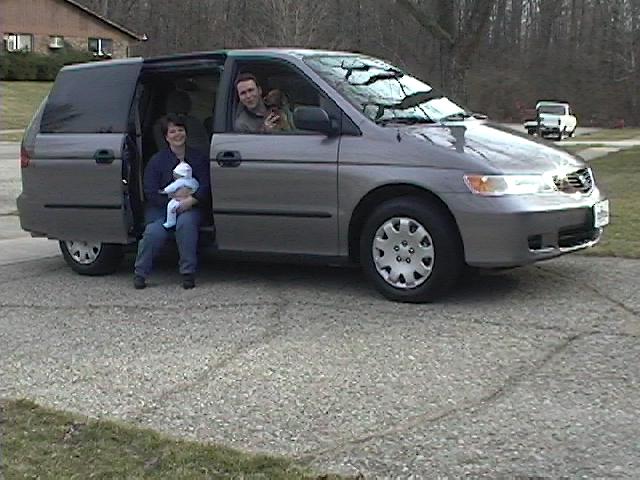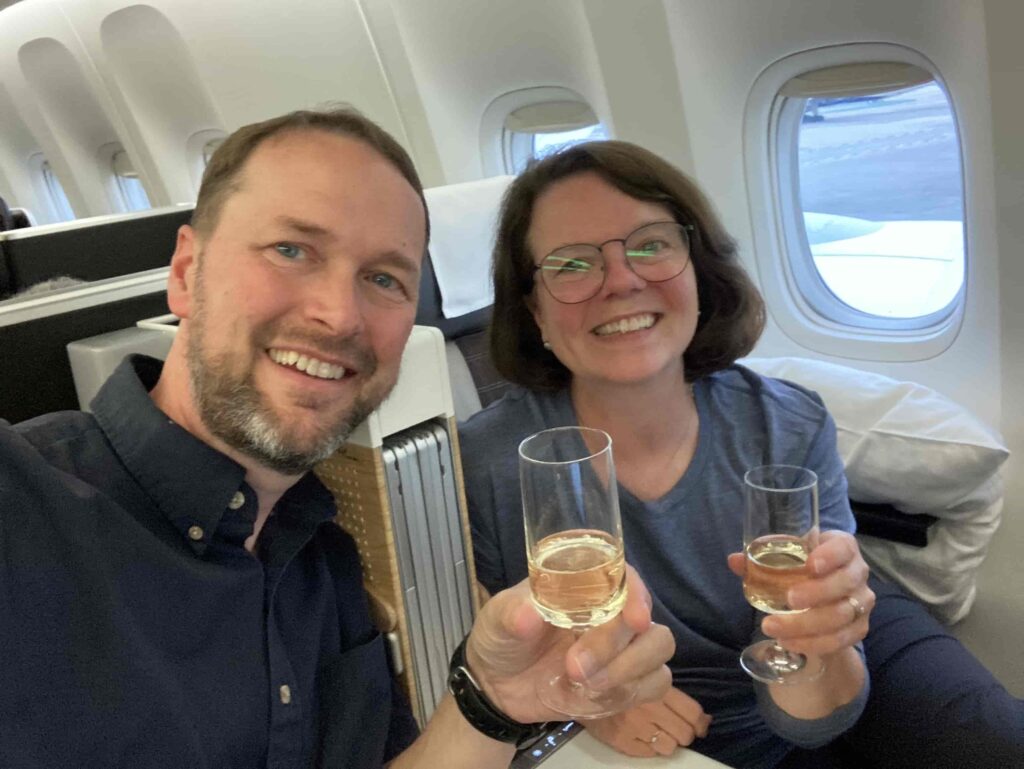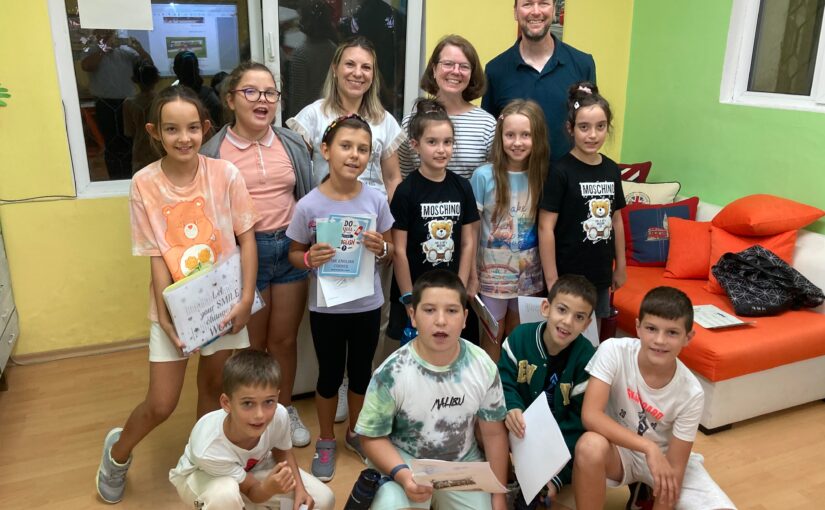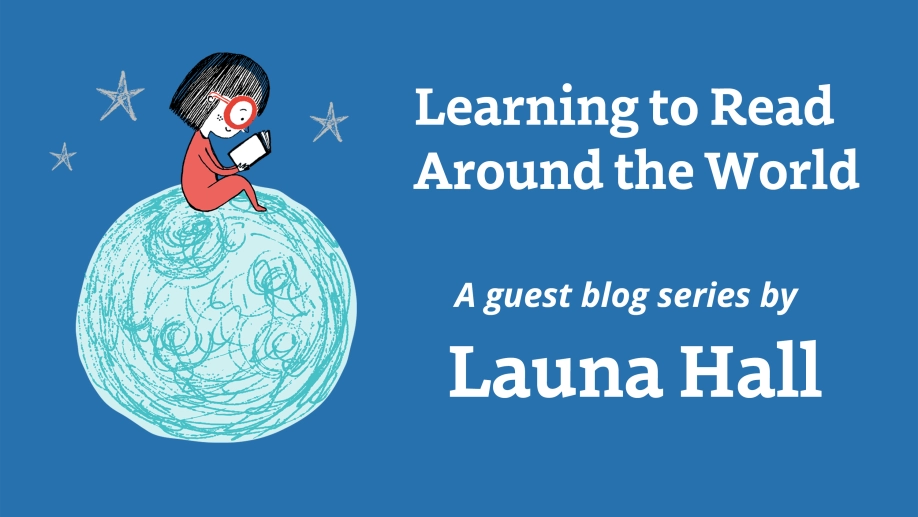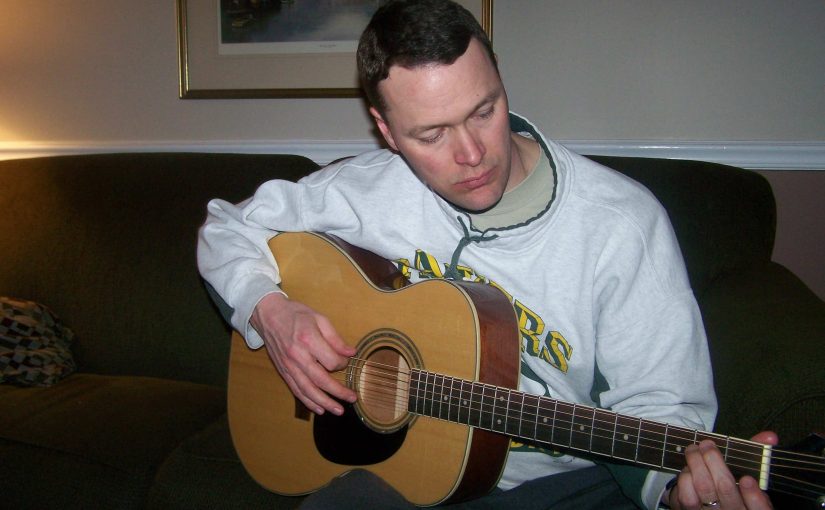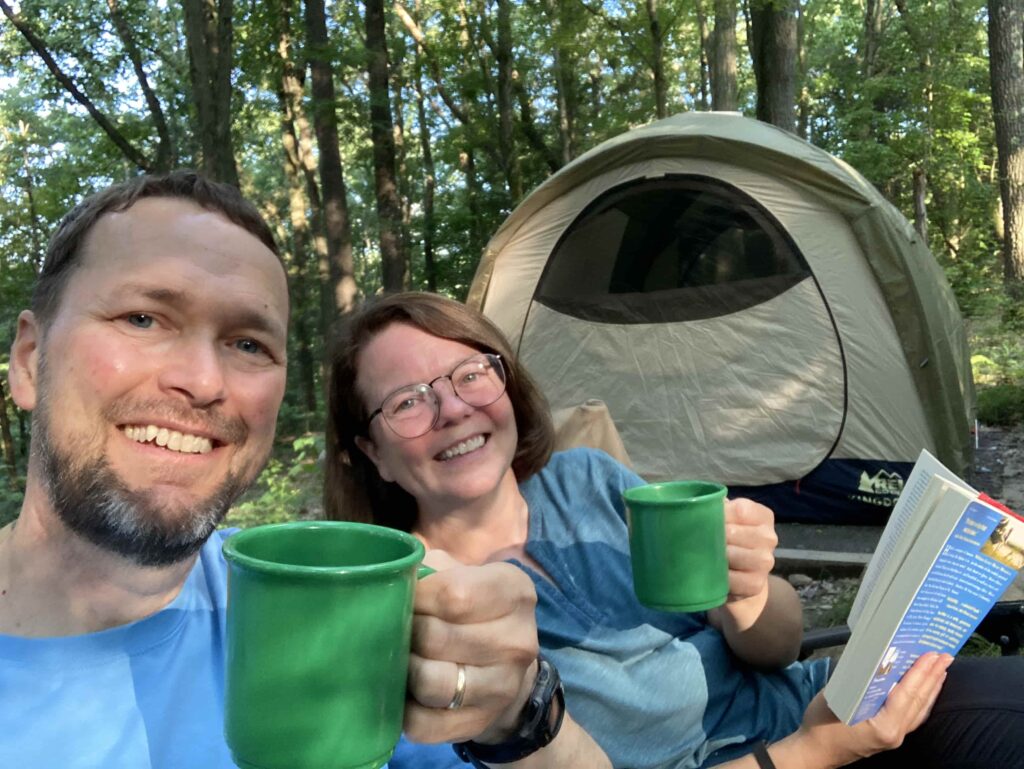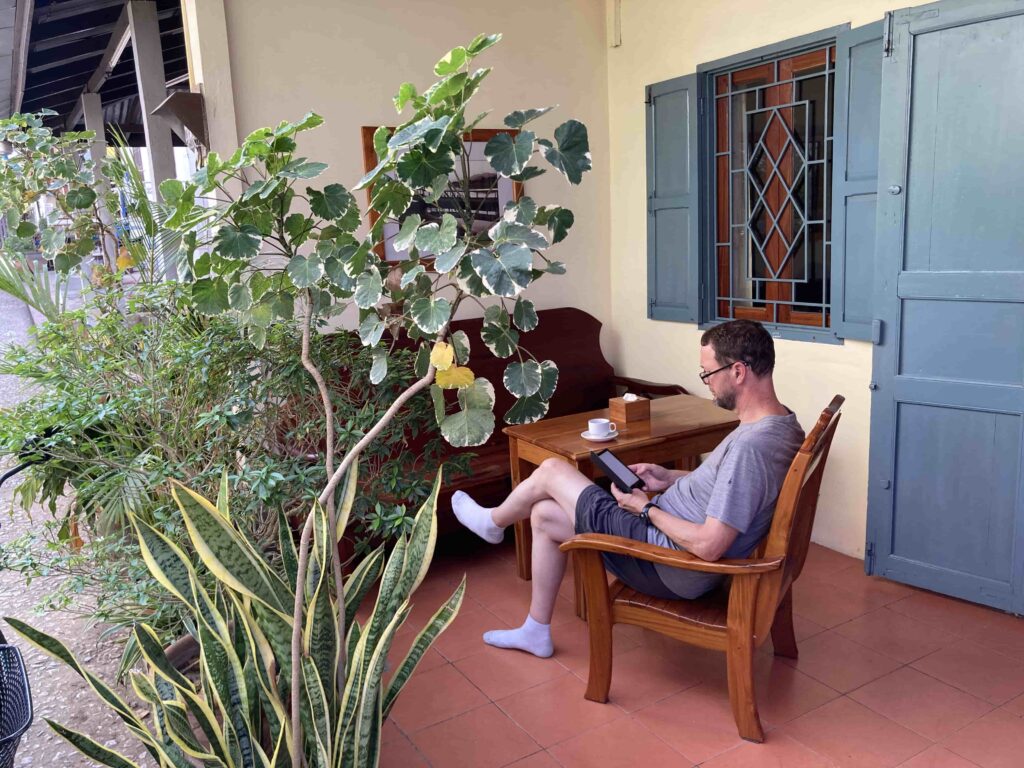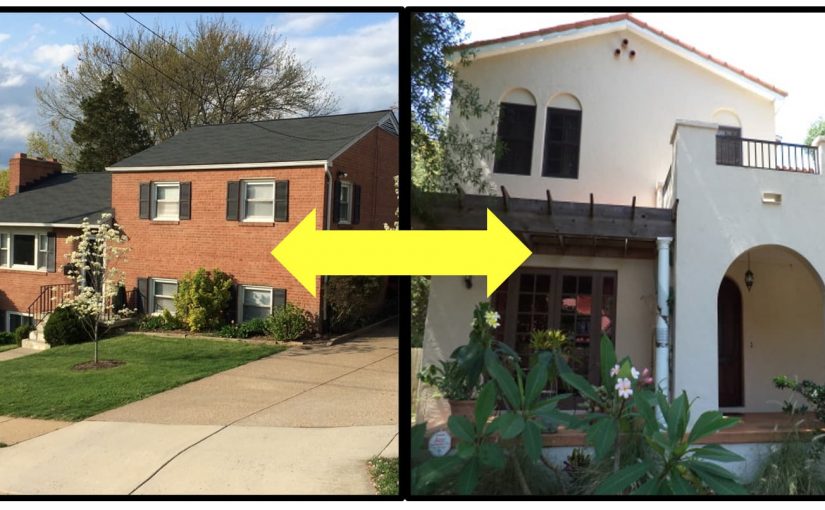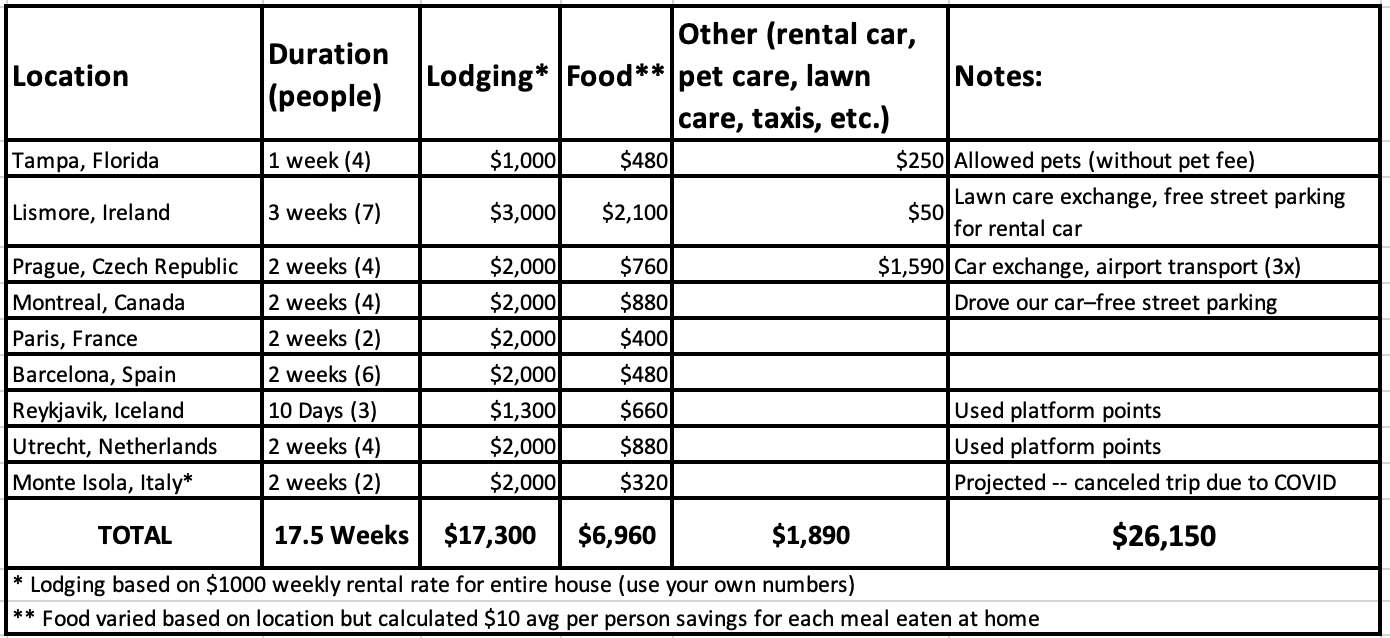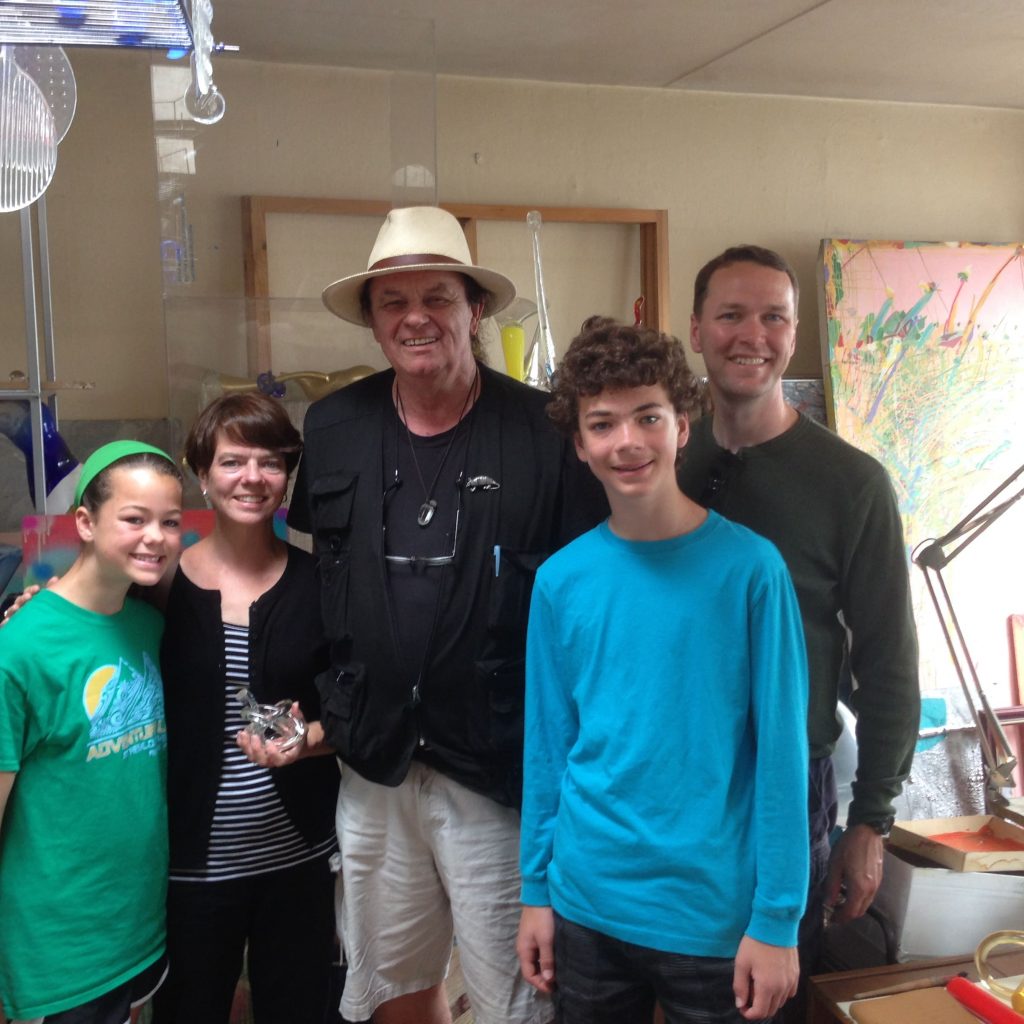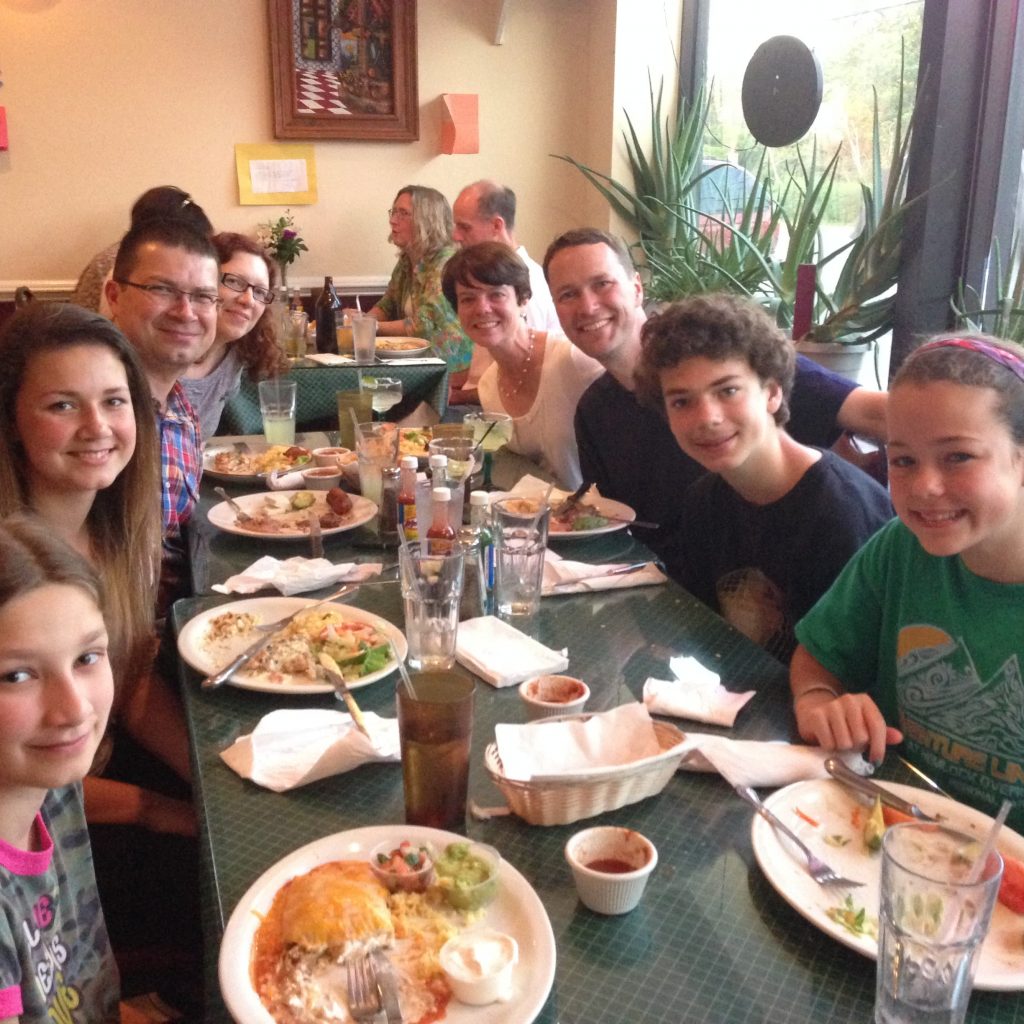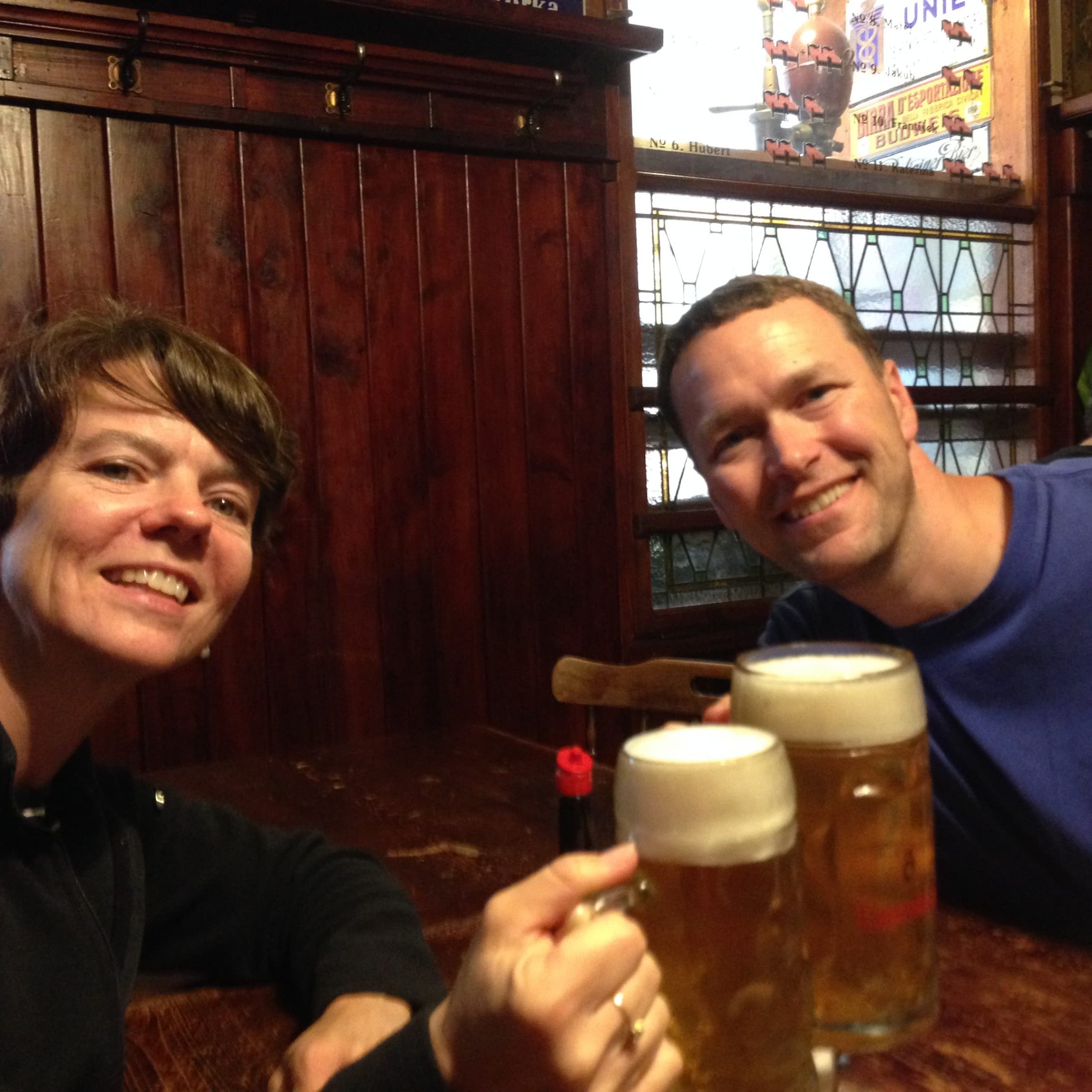Launa and I just completed hiking 243 miles (per her Fitbit) over 26 days along the Lycian Way (Likya Yolu in Turkish). Four of those days were “adventure” days where we visited ancient ruins and other sites. This is on top of hiking 100 miles from Bologna to Florence along the Via Degli Dei the week before.
As you might guess, we love inn-to-inn hikes and our adventure hiking the Lycian way (roughly from Fethiye to Antalya Turkiye) has been the pinnacle so far! The trail is challenging—we estimate ascending ~55,000 feet of elevation and descending about the same. The trail was often rocky with loose scree making the footing challenging. The views of the Mediterranean and the mountains were breathtaking and the scenery varied along the route. We hiked the route without camping gear limiting our options for accommodations but also limiting the weight in our packs.
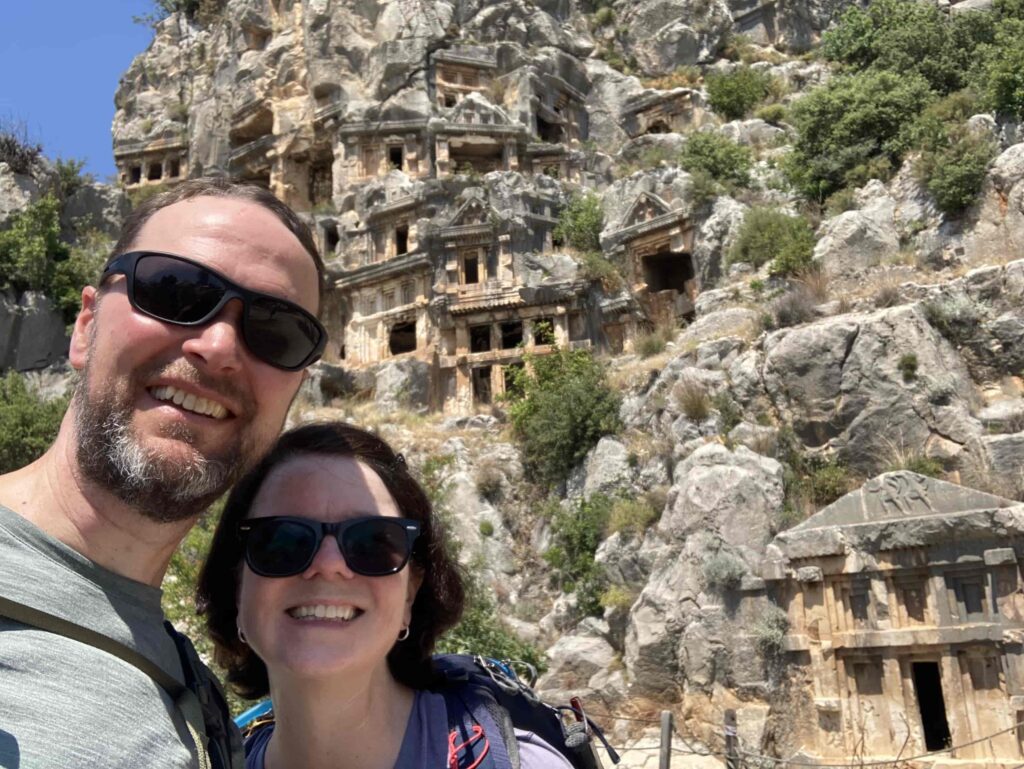
Here are my tips for hiking this trail inn-to-inn:
Hike from west to east and in April and early May.
We started from Fethiye, Turkiye on April 11 and we would not want it any hotter (or much colder). Waiting until late May or beyond will be much hotter and water will become more difficult to come by AND the resort towns will have more tourists, increasing prices and limiting lodging availability. There were reports of snow in the higher elevations from the eastern (Antalya) side a week before we started, but by the time we got to the highest point, the temperature was perfect for hiking (~55F). Plus, the plethora of spring wild flowers and humming honey bees were icing on the cake.
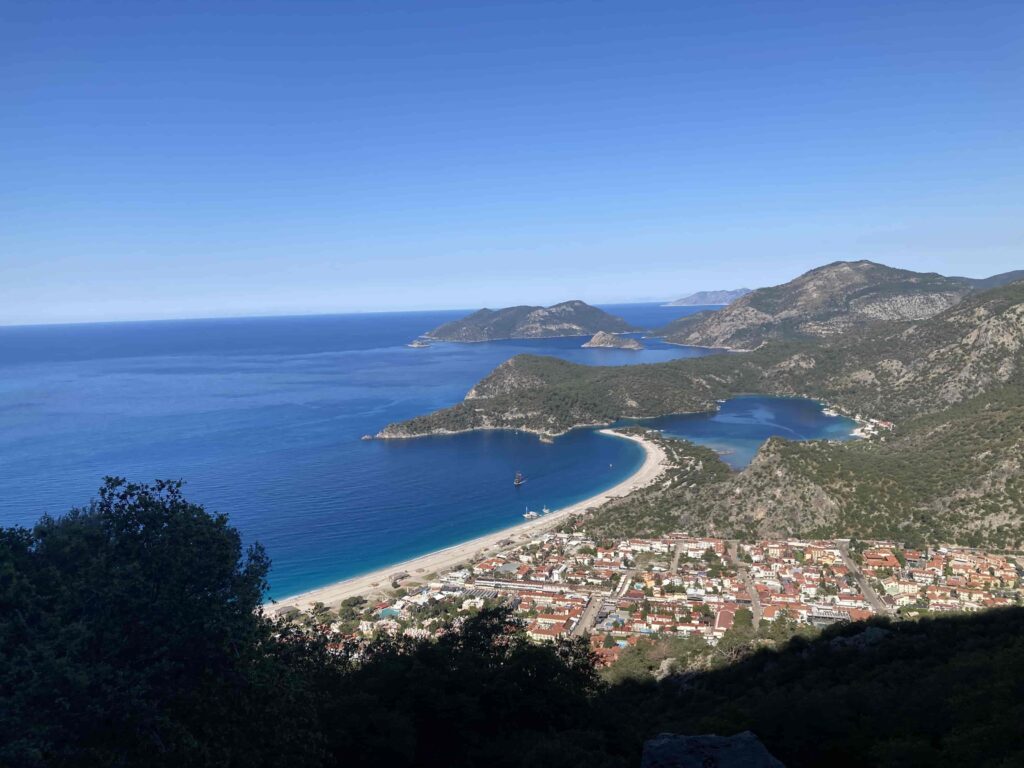
You don’t need to book rooms far in advance.
We are planners and we didn’t want to risk not having a room available. But starting in April before the main tourist season along the coast, every lodge had plenty of space. In fact, we were the only lodgers at a few of our lodgings. We discovered that what looked like limited options online was due to some places being closed until late March and early April. My wife still thinks having all the lodging planned out was a good thing, but if I were hiking it again, I would instead make reservations a day or two in advance and give ourselves more flexibility. If language is a barrier, we could ask our lodging host to reserve rooms on our behalf. (Note, you can use Booking.com for lodging in Turkiye—but only from outside the country. Once in Turkiye, Booking.com won’t work.
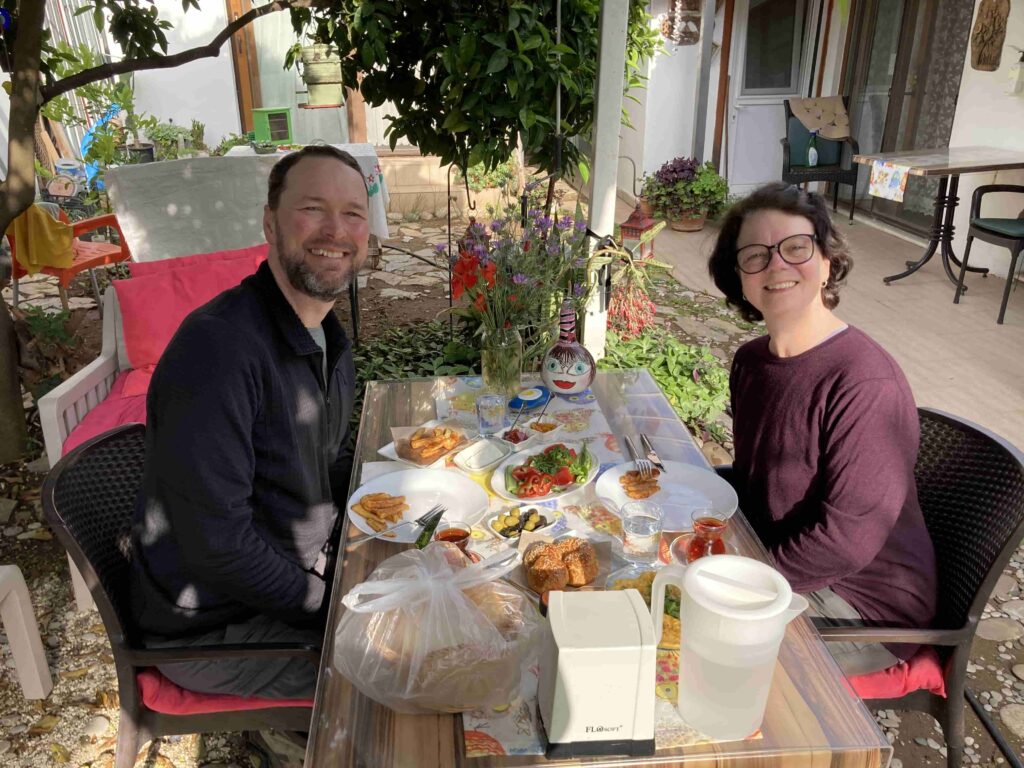
Take the alternative route through Sidyma.
The Sidyma ruins were our first Lycian tombs we visited along the trail. While they are not the most famous, they were fun to see. And stay at Fatma’s Sidyma Homes! This was our best cultural interaction and best dinner (and second best breakfast) along the trail. While the rooms are small with a shared bathroom, Fatma is a fabulous host and her place has a wonderful view of the valley and snow-capped mountains in the distance. There is also a good chance that Kate Clow, the founder of the trail will join you for breakfast as she lives nearby and is good friends with Fatma. We gained a new appreciation for the trail talking with Kate.
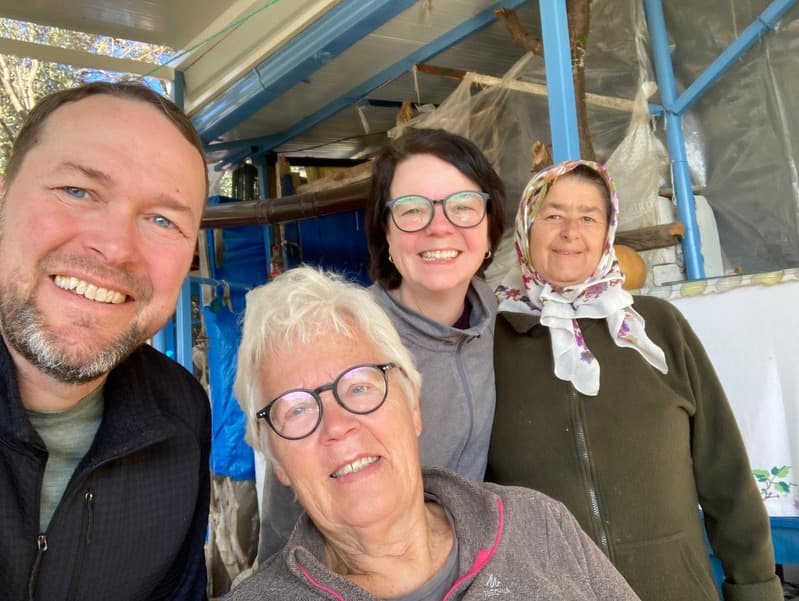
Carry a stone in your pocket.
Aggressive dogs are a concern along the trail, more so in towns where they are guarding their property. The dogs guarding goats were wary of us, but the shepherds did a good job of controlling them. We gave all the dogs a wide berth. The handful of dogs who attempted to leave their property and come at us were quickly deterred when they saw us bend over and pick up a stone and act like we were going to throw it. This action stopped 98% of the dogs in their tracks (we even had a couple lay down or turn sideways to us). I needed to toss a couple warning throws to get the attention of the other 2% but I never had to actually throw a stone at a dog. The reason I recommend carrying a stone vs just picking one up on the spot, is when you are in towns on paved roads, stones might be hard to come by when you need one the most. Odds are you will end your hike with the same stone you started with, as I did.
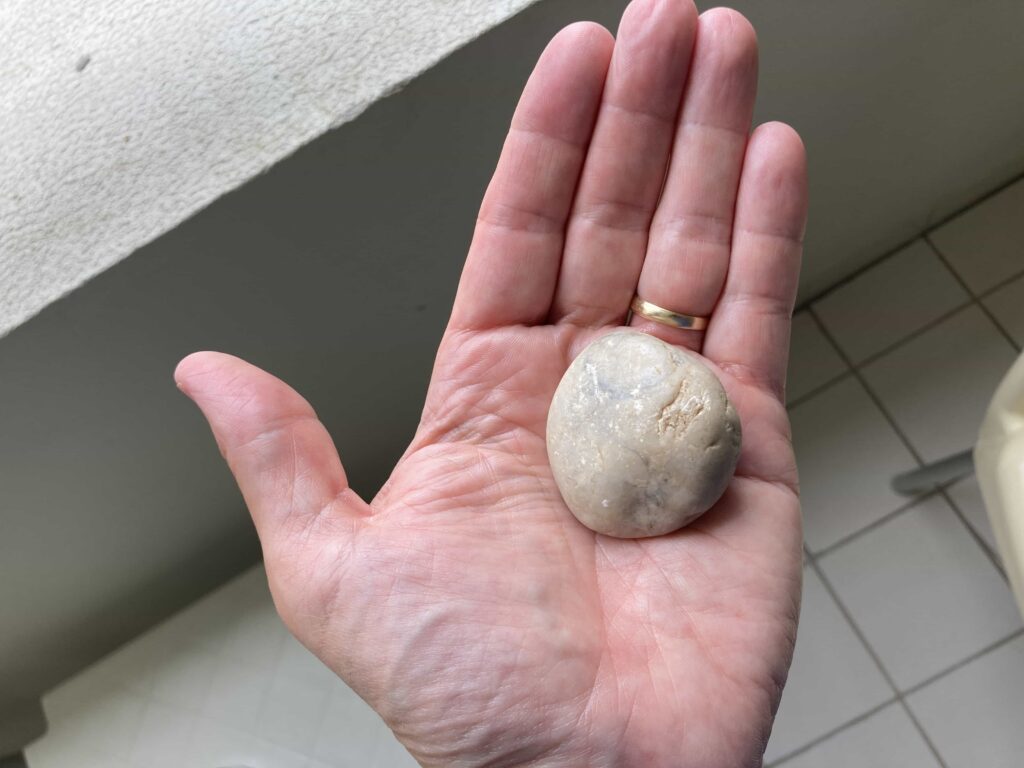
Bring hiking poles.
There are many benefits from hiking with hiking poles, but in particular to the Lycian Way I found them invaluable when coming down steep slippery sections, helping me push up steep inclines, and fending off some prickly bushes that would poke through my lightweight pants. They may have also deterred a few dogs and would be my defense if a dog did ignore my stone-throwing gesture.
Buy beers at the market.
I enjoyed a nice barley pop at the end of each day when I could. Most places (but not all) would sell me a beer at a premium (200 TL = ~$5.25), but with a little foresight, I would scope out the local markets and buy a beer to enjoy that evening from $1.50 to $2.50 apiece. We would also pick up lunch supplies as we enjoyed eating a picnic lunch on the trail–usually peanuts, crackers, and an orange.
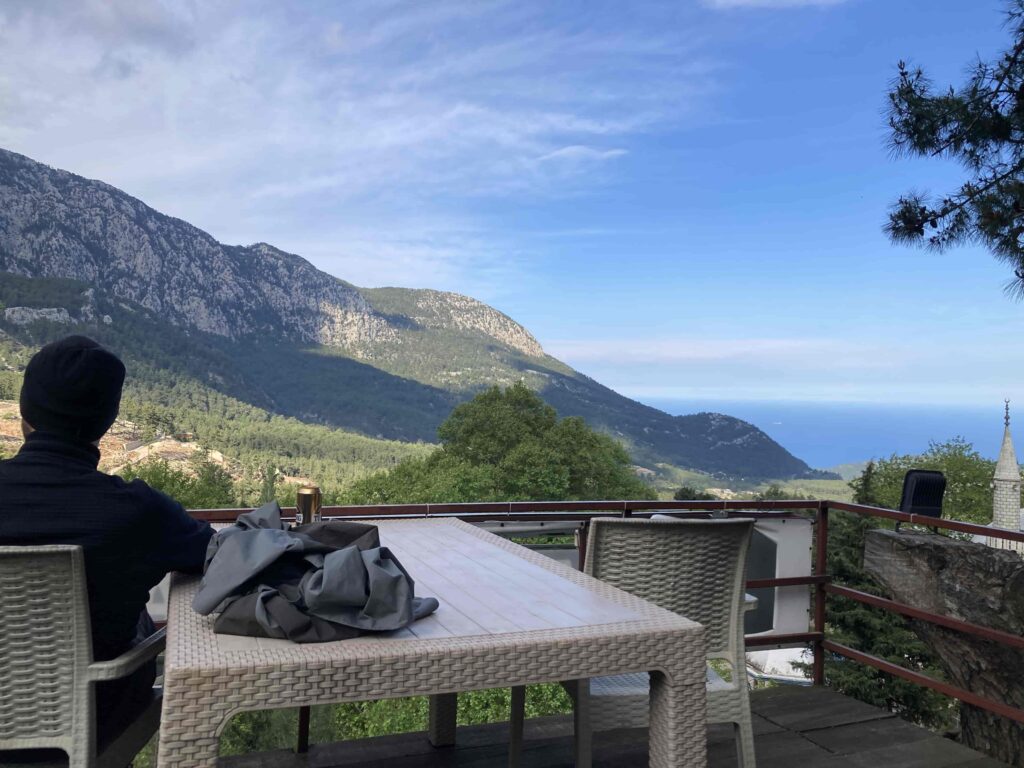
Build in time for chai (Turkish tea).
Enjoying the generous hospitality of the Turkish people was one of the best parts of our hike. There are many locals along the trail who have set up small stands to sell fruit, juice, chai, snacks, and food like gozleme (delicious Turkish pancakes). I enjoyed days when I built in some extra time in the day to allow me to stop in and enjoy some chai and gozleme. Likewise, I was sad on days when we had to skip the stop and keep hiking to get to our inn before it got too late.
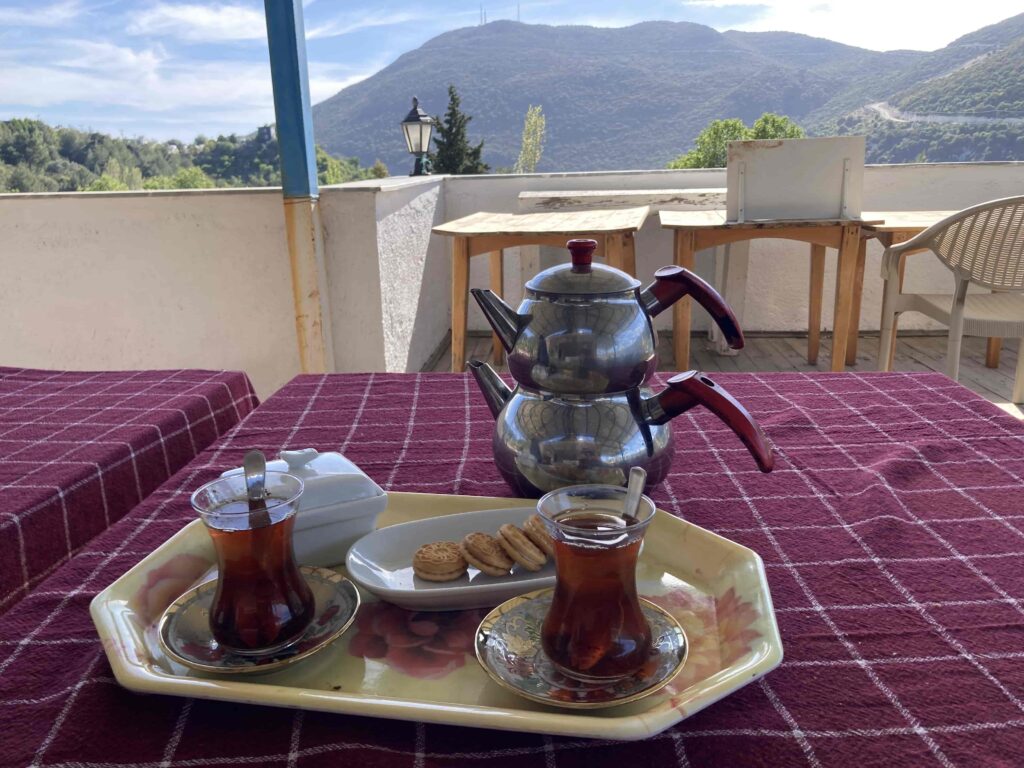
Careful which ATM you use.
Most ATMs in the towns along the trail charge an exorbitant 10% fee–yikes! Try to locate a bank machine that only charges the standard couple of dollars for withdrawals. There were several places along the way that only took cash (most would take Euros or dollars), so having some cash on you is essential.
Skip the taxis and ride the dolmus (or hitchhike).
As in so many locations, Taxis are way overpriced in Turkiye. But no worries, the local buses and minibuses (dolmus) are easy to ride. Just flag one down (they will often honk to see if you are interested) and ask the driver if they are going the way you are (if it is not clear from the sign in the front window). If they are not, they will explain when and where to catch the one you need. They are inexpensive and fun experiences (and often quite efficient). We decided to skip from Demre to Karaoz because lodging was hard to find on this stretch, so we hopped on a bus in Demre to Kumluca and then grabbed a dolmus to Karaoz and was dropped off in front of our accommodations. A dolmus is a fun part of the adventure. We didn’t hitchhike, but several fellow hikers shared their success in doing so and how friendly the locals were.
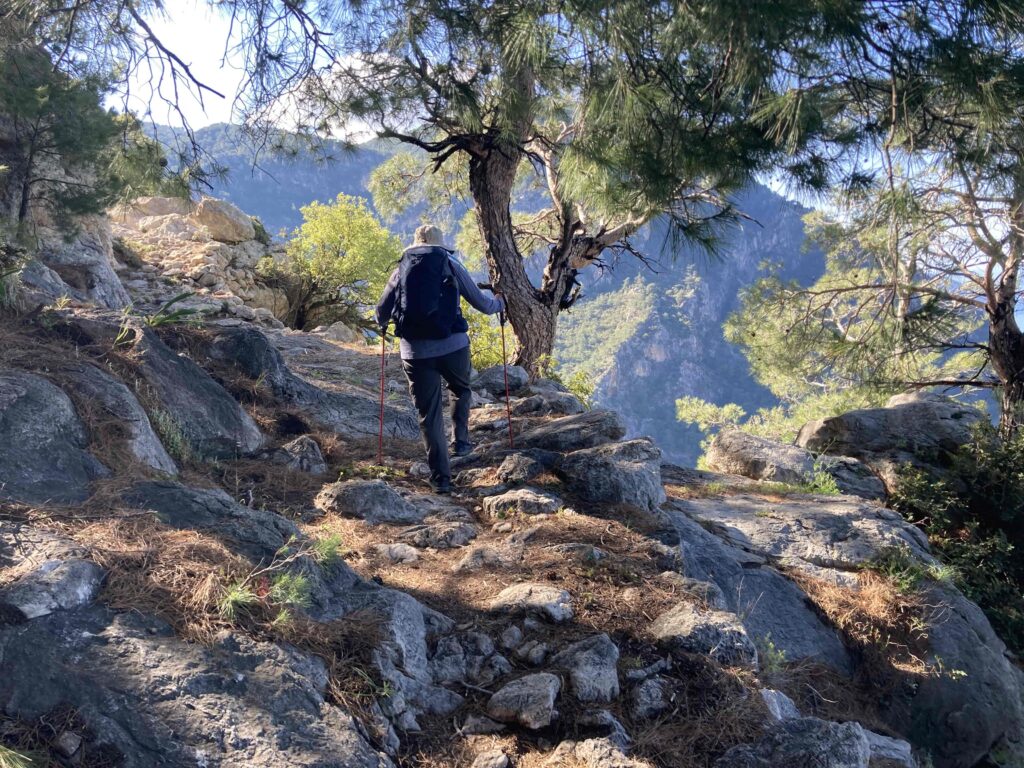
Go now before it becomes too popular.
As with so many great places to visit, they can become popular and overrun driving up prices and often causing places to adapt local culture to tourist preferences. Turkiye appears to be one of those places that is rapidly developing. If you are interested in hiking the Lycian Way before it becomes too commercialized, I recommend you hike it sooner rather than later.
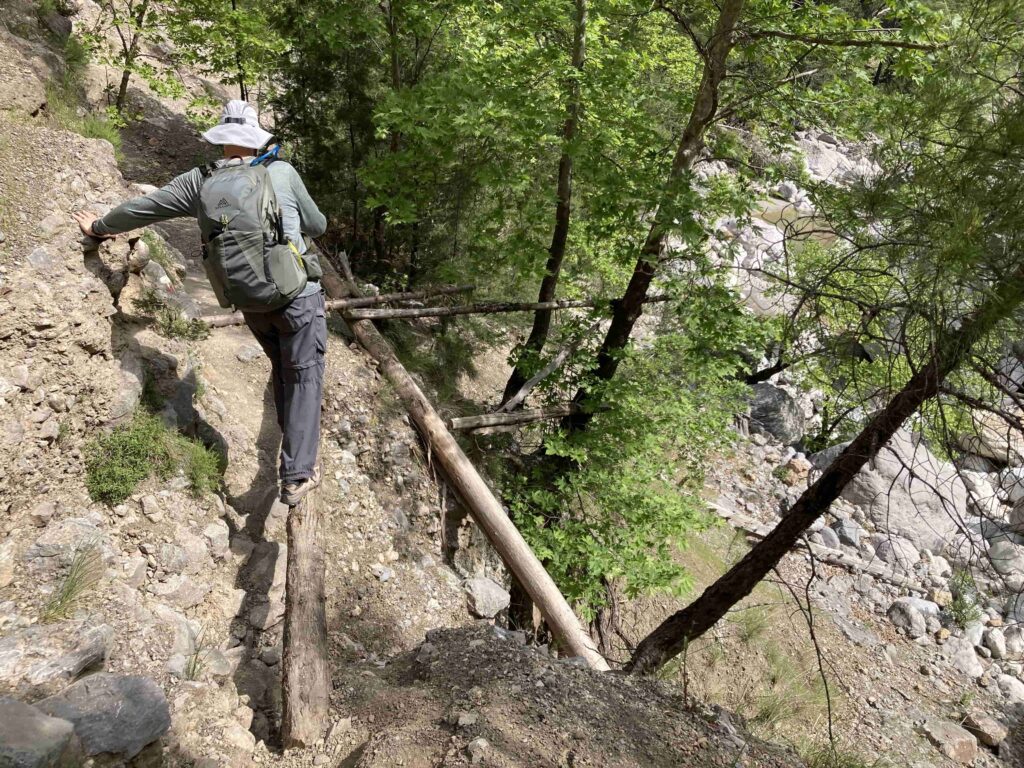
I hope these tips help you enjoy a great hike along the Lycian Way!
Here is a clip of our hiking theme song on our last day of hiking — a riff on the chorus of Macklemore’s “Thrift Shop.” We cracked ourselves up making up different lyrics to many songs, but this one seemed to stick. (Note, this does include a cuss word.)
I also recommend you subscribe to my wife’s virtual postcards at LaunaAtLarge@Substack.com to follow along with our travel adventures.
